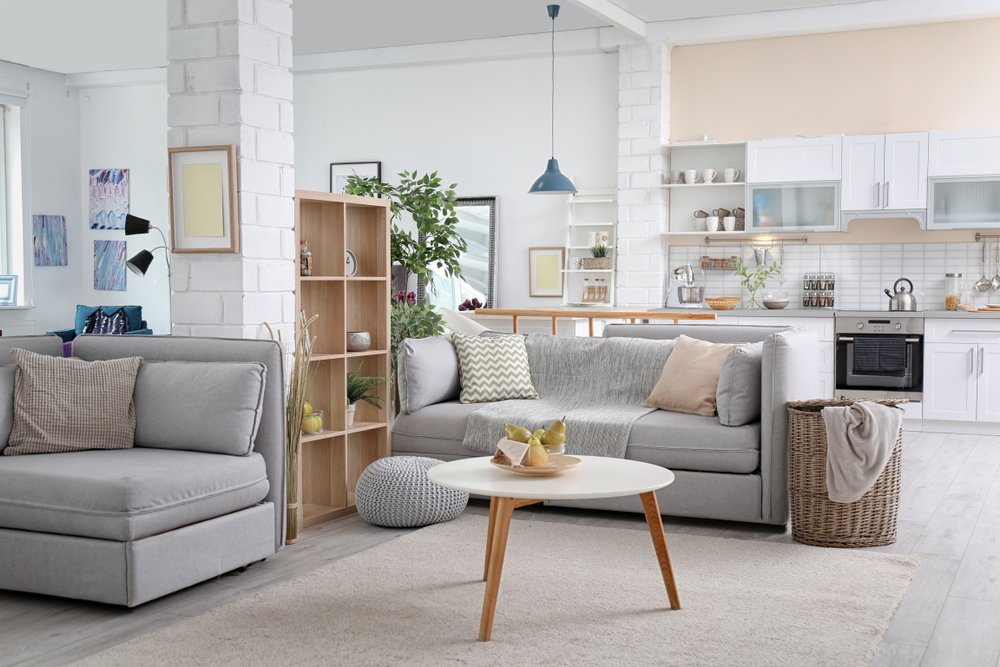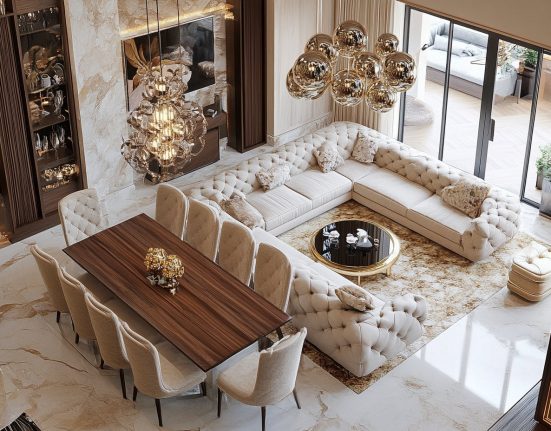The interior design gurus spill their secrets on how to approach these spaces
When it comes to figuring out how to decorate period living room ideas, your first thought must be comfort. Think plush upholstery, layers of cushions and throws and a fire burning in the fireplace. The perfect period living room is warm and welcoming, while also expressing your own individuality.
Of course, the living room serves multiple functions. It is used throughout the day, as a space to relax and spend time with family, as well as a central hub when hosting or entertaining extended family and friends.
How to decorate a period living room
There is an art to decorating period living room ideas. Whether you want to channel country living room ideas or are hoping to achieve a modern Victorian living room scheme, the approach is the same.
Start with a mood board, pulling together colours, textures and patterns; this will ensure that the elements all work harmoniously and lets you play with details before committing to purchases – saving time and money.
‘As well as embracing colour and pattern, don’t forget the power of plain space,’ explains ,’ explains Emma Deterding, founder and creative director at Kelling Designs. ‘It allows your eyes to rest and appreciate the key elements in the room.’
1. Start with your colour palette
The hardest part of designing period living room ideas is deciding on the living room colour scheme – this single choice will define the look and feel of the whole space.
‘The first thing to establish is whether your room is north- or south-facing, and to think about its natural light and the time of day you would use the room,’ advises says interior designer Kate Guinness. ‘this will determine whether you should go for warmer or cooler colours.’
‘Once you’ve established your colour family, it is important to paint up large swatches of paint colours – or wallpapers. Try them on different walls and view them over the course of the day so you can see how they look in your space and light.’
2. Select comfortable seating
No matter how beautiful your living space is, if the seating is not comfortable and cosy, then you won’t want to spend time there. However, finding the best sofa is no easy feat. When choosing a sofa, be sure to try out a wide range of shapes, styles and materials and request fabric samples so you can see how the colour looks in the space.
‘Sofas and armchairs are real investment pieces, so it is important to ensure you are going to love the product for a long time before making any big purchase,’ says Teresa Buck, head of brand creative at Cotswold Co. ‘Bold colours in nature-inspired tones bring presence and versatility, without making a statement.’
3. Play with layers of archive prints
Patterns are a great way to flood your room with personality. ‘It is important to choose designs that have meaning to you, whether that is a colour, shape, heritage or inspiration,’ says Jessica Clayworth, lead designer at Morris & Co.
‘The trick to harmonious period living room ideas is to find an anchor colour that links your varying patterns together. Sometimes pairing motifs is as simple as going with what you like and trusting your personal taste. It is important to live around patterns that make you feel calm and happy to be home.’
4. Mix different textures to add depth to your period living room
Seek to create a cosy and inviting space by layering different materials and textures. Don’t, however, overdo it: if miscalculated the room can quickly feel cluttered and overwhelming.
‘When it comes to introducing colour, pattern and texture, balance is key,’ explains Emma from Kelling. ‘If you have a fairly neutral base on walls and floors, then you really have total freedom. Opt for upholstery in bold colours – velvets in rich tones are great – to liven up the space and act as an anchor to base your design.’
You can then pair this with contrasting sofa cushions, textural throws, patterned lamp shades and decorative window treatments.
5. Add authentic charm with natural materials
Don’t underestimate the power of neutrals to create a restful and timeless space. Tones of white, cream, beige and brown instantly evoke serenity. Neutral living room ideas also allow the architecture of the space to take centre stage, whether this is coving, architrave, or alcoves.
Complementary furniture and accessories in natural materials will add extra tactile texture and create an additional feeling of depth in the space.
6. Establish a balanced lighting scheme
Whether you are channelling warm and cosy or bright and airy, living room lighting ideas play an essential role. Maximise natural light by exposing glazing, paint in light colours, and add reflective surfaces. This provides a base against which you can layer artificial lighting.
‘Rather than relying on a single pendant, a layered scheme of lamps and wall lights will add depth,’ advises interior designer Birdie Fortescue. ‘A floor lamp will help to focus light while also adding height, colour and texture.’
7. Dress cold floors with a rug
Wooden flooring will instantly set the tone of your period living room ideas. However, it will benefit from the soundproofing and insulating properties of a rug, which will also help to protect the floor from scuffs and scrapes – especially if you have heavy or moveable furniture.
Opt for one of the best rugs in a neutral shade with a low pile as this will prove more durable and easier to maintain, and won’t overshadow the beauty of the wooden floor.
8. Don’t forget the small details
When choosing window treatments, do not overlook the potential of trims and edging to add texture and interest. If opting for curtains, consider, too, installing tiebacks for a decorative yet practical addition.
‘Tiebacks keep the curtain back from the window, helping to frame it and let in more light,’ says explains Saffron Hare, creative director at fabric specialists James Hare. ‘If there is also a blind at the window, then curtains don’t necessarily have to be drawn, so a tieback is a smart finishing touch.’
9. Incorporate plenty of aesthetic storage
If you are a bibliophile, book storage is essential, and with so many pretty covers and colours, make the most of books’ decorative qualities. Bespoke fitted storage, painted in a rich hue, will create a library-inspired aesthetic that instantly adds a sense of warmth. Pair with plush seating and table lamps for a cosseting scheme.
What is a traditional living room style?
Traditional period living room ideas are those which celebrate classic design principles – antique furniture, sofas with elegant silhouettes and soft lighting are all great ways to achieve the look.
‘Achieving a traditional living room style doesn’t mean recreating complete room schemes or interiors you see elsewhere, but rather picking out certain elements you enjoy and that speak to your inner stylist – be it a pattern, colour, clever upcycling or display idea,’ explains Period Living magazine’s Rachel Crow.
What makes a timeless living room?
Neutral colour schemes and versatile furniture choices are vital in making a timeless living room scheme. Avoid going bold with permanent features such as tiles, upholstery and furniture. A bright cushion in an on-trend colour is much easier to swap out of the space than your flooring.
‘I’ve always been an advocate of buying something right once,’ advises interior designer Naomi Astley Clarke. ;Choose finishes for your living room that are as lasting and timeless as possible and that suit the architecture of the building. That way they will always complement the home they belong in even if fashions come and go.’
‘I recommend choosing hard finishes and quality, investment furniture that are more neutral and will work with many different colours. Then, your wall colours can be more dramatic and easily change over time. Remember flexibility is key – a living room may serve one function in 2023 and an entirely new function 20 years on, so long as the backdrop is well made, you should be onto a winner.’








